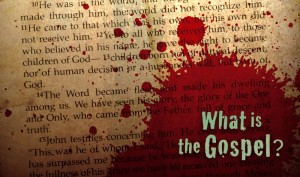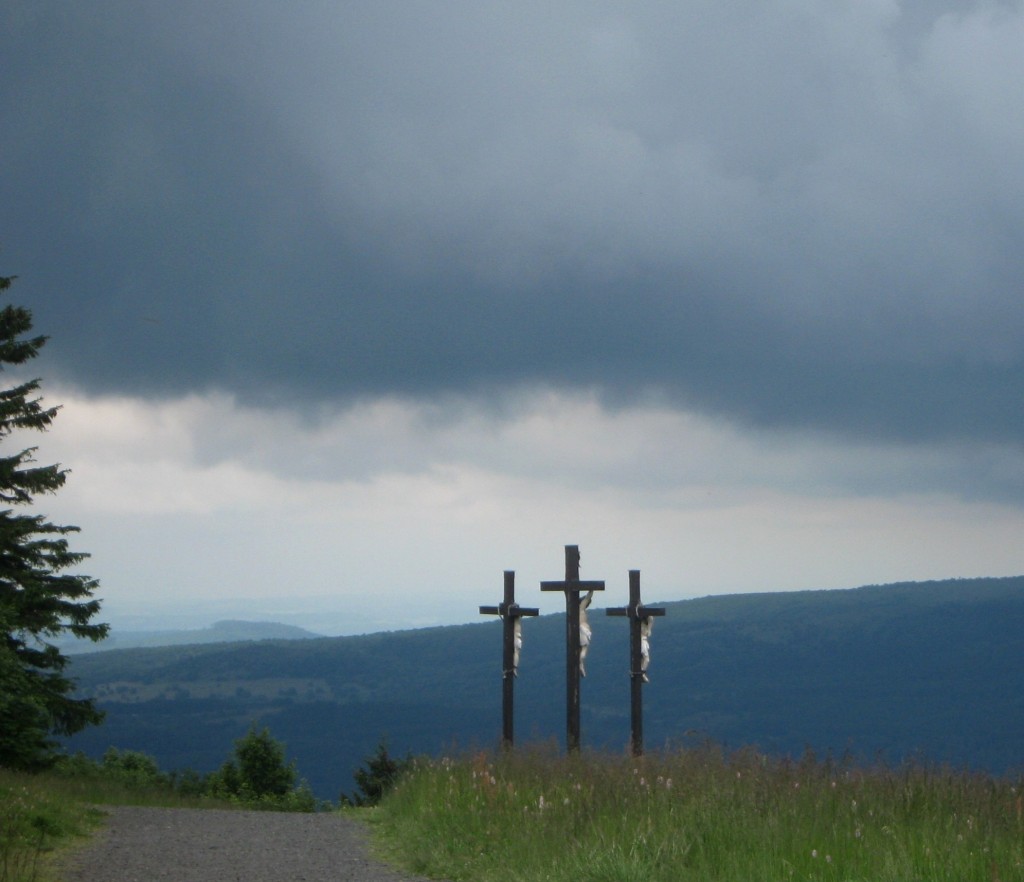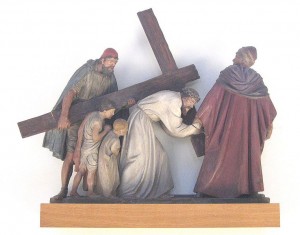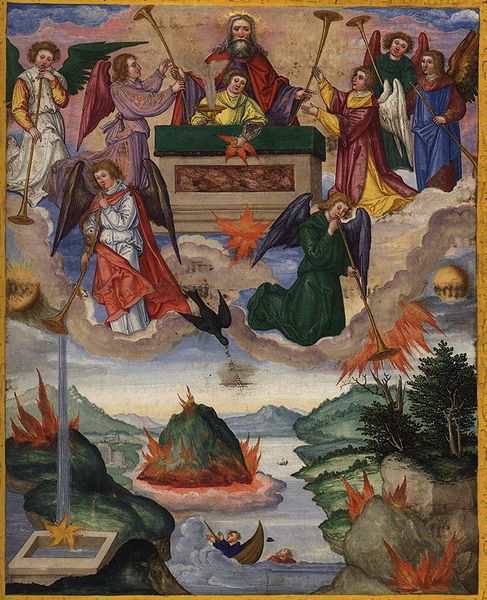In memory of a former colleague who tragically passed away, here is an article I wrote back in 2010. RIP Paul.
 In the last few years I have been struck by the death of a few people around my age.
In the last few years I have been struck by the death of a few people around my age.
One was my cousin Olaf, found dead in his bed in Germany by work colleagues. He was 42 and left behind a wife and two young children. Another was the popular Melbourne sports journalist Clinton Grybas, also found dead in his apartment. He was 32. Then there was Heath Ledger, a brilliant actor with everything before him, dead at the age of 28.
Following on from this, in the last couple of years there have been four people that I have known in various capacities who have taken their own lives. These kinds of deaths have added an extra element of tragedy, as they will leave inevitable questions of guilt and unresolved sadness with their loved ones who are left behind.
Why is it that everything dies? Why don’t we live forever? Why, the second we are born, do we begin to die? John Mellencamp, in his song, For the Children, expresses this eternal question so eloquently when he says,
I wish I could give you an answer, as to when life really begins,
I wish I could tell you where we went, when our days here come to an end.
Wish I could see the future, the same way I see the past.
Wish I could draw a conclusion, why nothing here seems to last.
Life is a mystery, death equally so. The only reason I can come up with as to why nothing here seems to last – and I don’t mean this to sound glib – is the Christian explanation of the fall of humanity. There is something in us that knows that life is not the way it should be, that something is wrong with everything. Equally, we have a deep sense that death is not the way things are supposed to be. It is not normal. Death is terrible. The fact that a loved one is now in the arms of Jesus is comfort, but it does not fully take away the sense of finality that we experience when someone we cherish is taken from us. Something has disrupted the proper state of affairs, and to me, belief in the fall of humanity, as an attempt to make some sort of explanation of it, makes a whole lot of sense.
Death is one of the few certainties in life. Unless Jesus comes back in our lifetimes, some day every one of us will die. As I grew from a young boy into an adolescent, I remember thinking that, in my young mind, there was no reason why I could not live forever. In fact I was going to be the first person to defy the odds. It seems that every young person has similar thoughts for at least a period of their life. We think we are invincible – hence the tragic deaths of so many young drivers on our roads each year. Now though, as I pass the half-way mark of the average lifespan of the Australian male, the reality that I am actually not invincible is something I have become more aware of.
The fact of life is that we simply never know when our time is up. No one knows the day or the hour. We make plans for the future. We say we’ll meet our friends at 7pm tomorrow night for dinner, but the reality is we can’t be sure of that. Clinton Grybas had it all ahead of him. By all accounts he was a lovely man, and was seen by many as the next big name in Australian sports journalism. The last thing on anyone’s mind would have been the idea that he would never get there. The same with my cousin Olaf. His 2 little boys will now never know their father.
John Smith, founder and President of God’s Squad, has said that life is primarily about loss. As I approached my 40th birthday last year, I realised that life is also about how you deal with the losses that will inevitably face you. Gary Thomas, in his book, The Beautiful Fight – Surrendering to the Transforming Presence of God Every Day of Your Life, says that “Pain in this world is a foregone conclusion. The only question is whether we choose to live a life of redemptive pain or of self-destructive pain. I pray you’ll choose redemptive pain.” The reality of death drives me closer to God. It gives me more of a passion for Christ. And it brings me closer to the conviction that nothing else in life matters but love. Love is above all. This is what life is about. When everything else is stripped away, what really counts is love.
Over the many chequered years of human history, death has remained the one fact of life that we have never been able to deal with. Death is indeed the great leveler. Whether rich or poor, selfless or greedy, we all face the same fate. In the end we can’t take what we have with us. There has been a popular bumper sticker which says “the one who dies with most toys wins”. I saw a brilliant response to that once which said “the one who dies with most toys still dies”.
When I was in my early twenties my Dad said to me that it’s a young person’s world. I think what he meant was to make the most of life while I’m young. But it’s true isn’t it. Our culture tries to deal with the inevitability of death by denying it. We want to pack as many experiences into life as we can fit. Life is packaged for the young, especially, the young, beautiful and hip. We have anti-aging creams, women get breast implants, celebrities get cosmetic surgery, and it’s all done in an effort to maintain our youth against the ever-increasing ravages of time. Some people even refuse to go to funerals in an attempt to deny the inevitable. Often our response to death is one of denial. John Mellencamp again expresses this further in his song Longest Days:
So you pretend not to notice that everything has changed.
The way that you looked and the friends you once had,
So you keep on acting the same
It is a mark of maturity when people can look death in the eye for what it is and be real about it. A pastor of mine once related a story told to him by an elderly man who one day woke up and realised that, at the age of 65, his life had gone in the click of a finger. Just like that, all of a sudden he was facing the twilight of his life. It has been said that when we are on our death beds we are not going to look back and wish we’d spent more time in the office. We are going to look back and wish we’d spent more time with our families, more time in relationship, more time just being. Bono, in the U2 song, Kite, sings, “I’m not afraid to die, I’m not afraid to live. And when I’m flat on my back I hope to feel like I did.” When I am lying in my grave, I hope I will have lived the life of a person who wasn’t afraid to live.
Further on in his song Longest Days, Mellencamp, reflects on the shortness of life:
But nothing lasts forever,
Your best efforts don’t always pay.
Sometimes you get sick, and don’t get better.
That’s when life is short, even in its longest days
None of us can avoid the fate that inevitably awaits us. What we can do though is face life with courage, faith and hope. The old Serenity Prayer says it all:
God, grant me the serenity to accept the things I cannot change, the courage to change the things I can, and the wisdom to know the difference.
This is a prayer for the ages. As our lives pass through time like the clouds on a windy day, thank God that there is hope. Thank God that the universe is a friendly place. Thank God that in the end, truth will win out, that there will indeed be no more tears and no more pain (Rev. 21:4). And thank God that on that day we will finally be able to say “Where, O death, is your victory? Where, O death, is your sting?” (1 Cor 15:55).
As I think of the death of the father of a friend of mine this week, and the death of an aunt a few months ago, the words that keep coming to mind are ‘I am the Resurrection and the Life’. Our Lord knew the deep sadness of death. He knew it more than we will ever know it, but he also knew the sadness of losing a loved one. When his friend Lazarus died, Jesus was highly emotional (Jn 11:35). But like Nick Cave and the Bad Seeds sing, Jesus knew that death is not the end. Check out this moving, haunting song:
Uploaded by Miri12RS on 2011-04-14.
While reality seems to scream at us that death is the end of everything, faith says something else. Death is not the end. Life is what has no end. Suffering and death will pass, for they are not normal. Though we may walk through the valley of the shadow of death, we have nothing to fear, for He is with us. He walks before us into the sunlight of a new day, guiding us, leading us. Though we may carry our cross today, one day soon there will be resurrection. Then we will see the new heavens and the new earth coming together, and we will rejoice, and we will finally know that this is how it was meant to be.
 I’ve been thinking alot recently about meaning in life and how we all need something bigger than ourselves to give us purpose. I have found that the type of life I have lived for many of my adult years has been a life without meaning. It has ultimately been a life that is futile.
I’ve been thinking alot recently about meaning in life and how we all need something bigger than ourselves to give us purpose. I have found that the type of life I have lived for many of my adult years has been a life without meaning. It has ultimately been a life that is futile.











